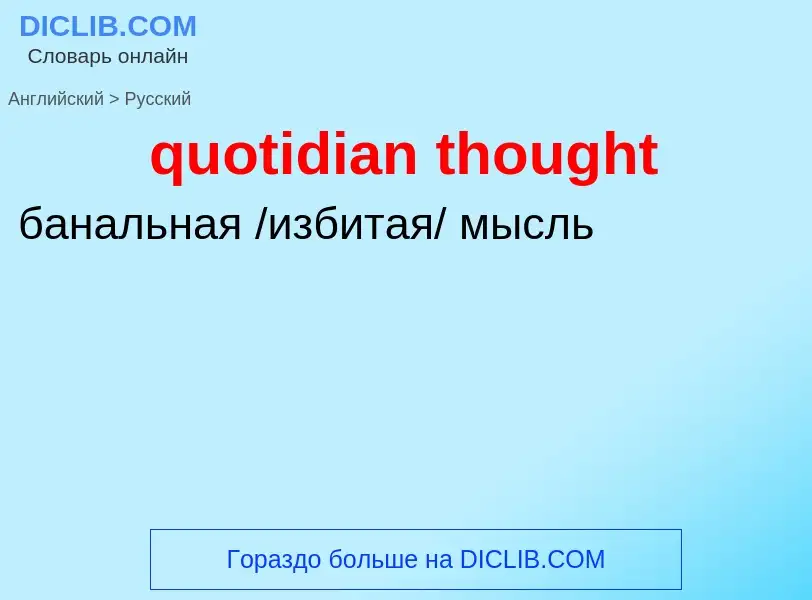Translation and analysis of words by ChatGPT artificial intelligence
On this page you can get a detailed analysis of a word or phrase, produced by the best artificial intelligence technology to date:
- how the word is used
- frequency of use
- it is used more often in oral or written speech
- word translation options
- usage examples (several phrases with translation)
- etymology
quotidian thought - translation to russian
Wikipedia
Brain-reading or thought identification uses the responses of multiple voxels in the brain evoked by stimulus then detected by fMRI in order to decode the original stimulus. Advances in research have made this possible by using human neuroimaging to decode a person's conscious experience based on non-invasive measurements of an individual's brain activity. Brain reading studies differ in the type of decoding (i.e. classification, identification and reconstruction) employed, the target (i.e. decoding visual patterns, auditory patterns, cognitive states), and the decoding algorithms (linear classification, nonlinear classification, direct reconstruction, Bayesian reconstruction, etc.) employed.
In 2007, Professor of neuropsychology Barbara Sahakian qualified, "A lot of neuroscientists in the field are very cautious and say we can't talk about reading individuals' minds, and right now that is very true, but we're moving ahead so rapidly, it's not going to be that long before we will be able to tell whether someone's making up a story, or whether someone intended to do a crime with a certain degree of certainty."

![Emotiv Epoc]] is one way that users can give commands to devices using only thoughts. Emotiv Epoc]] is one way that users can give commands to devices using only thoughts.](https://commons.wikimedia.org/wiki/Special:FilePath/EPOC IGN.jpg?width=200)


